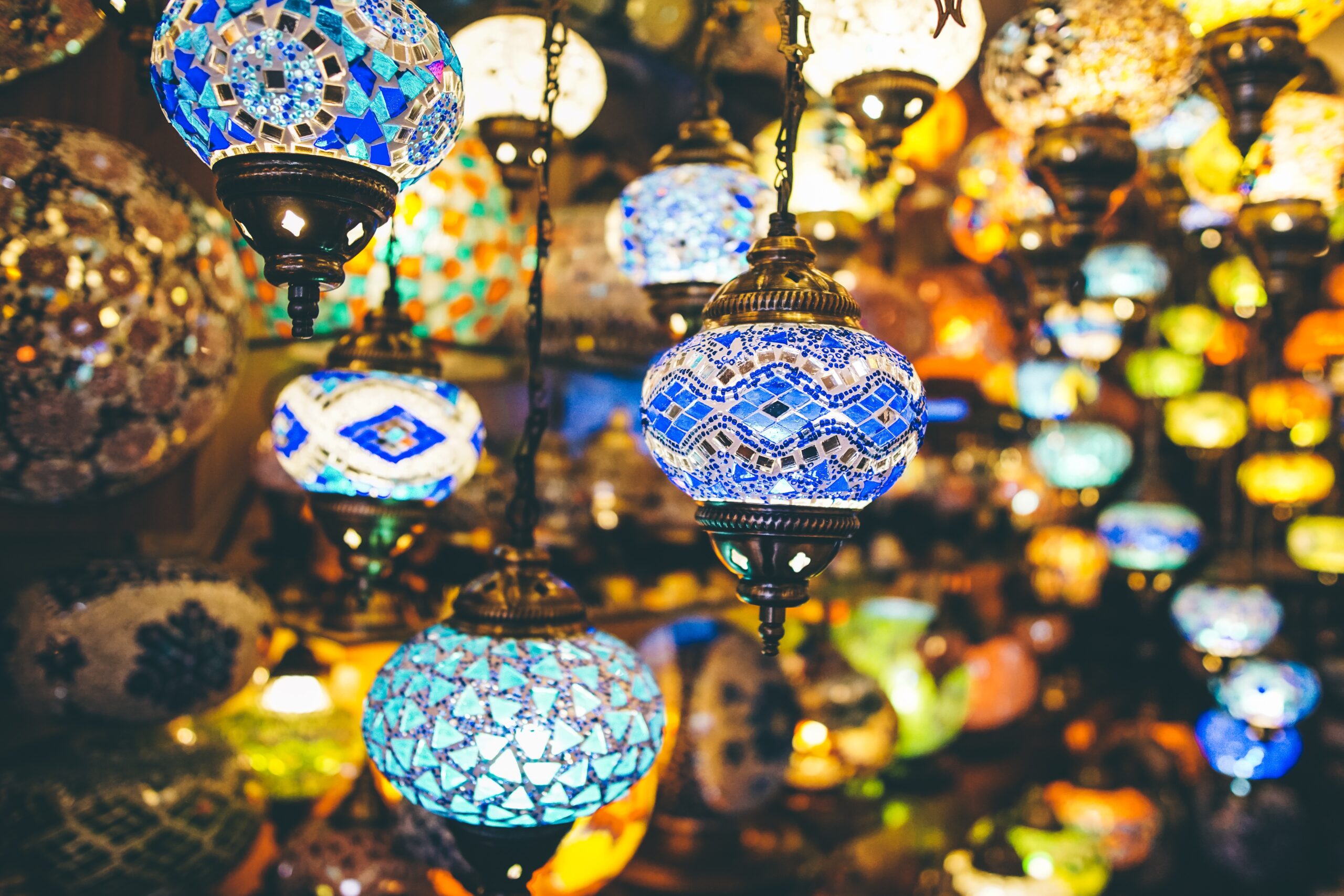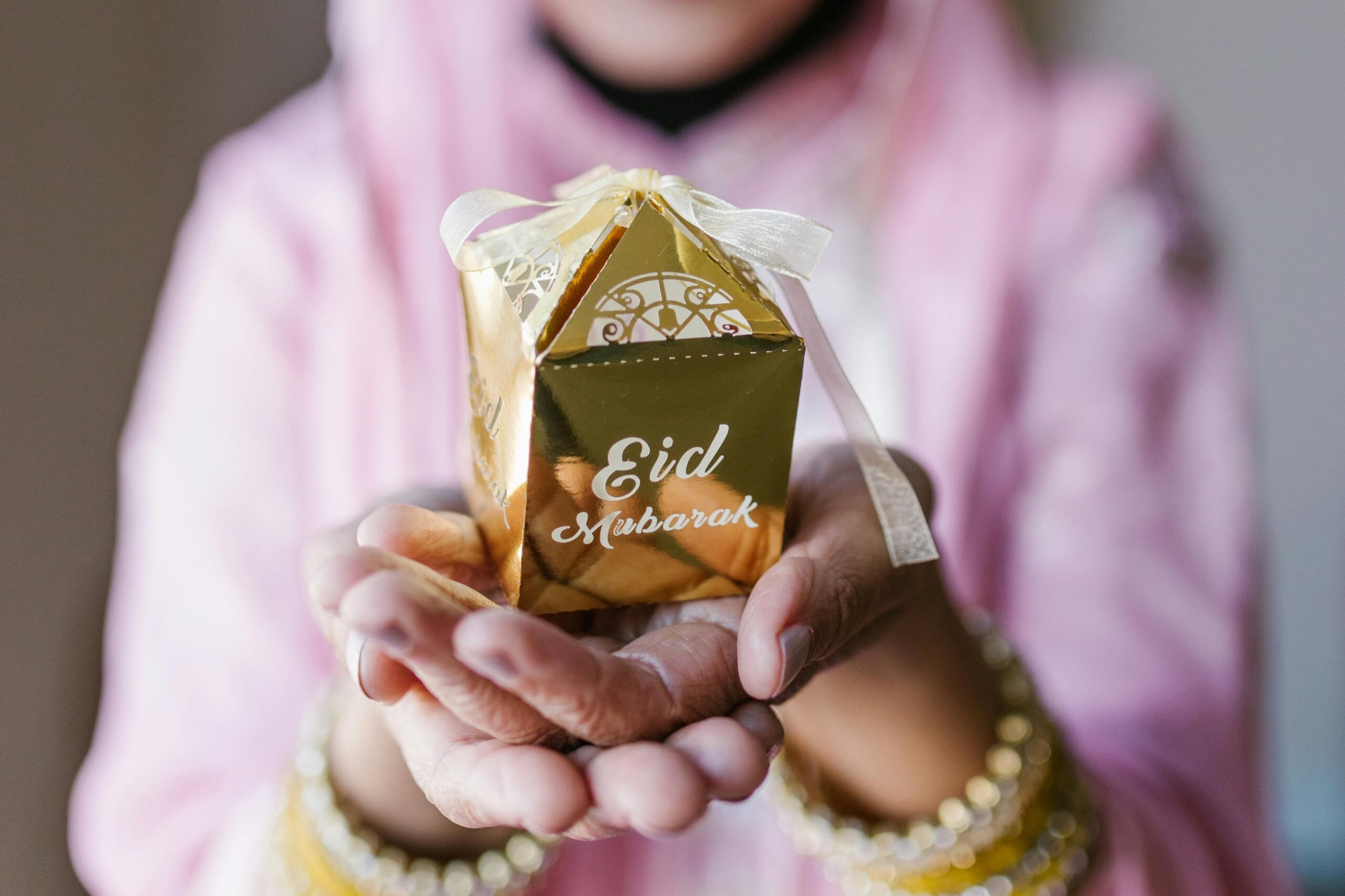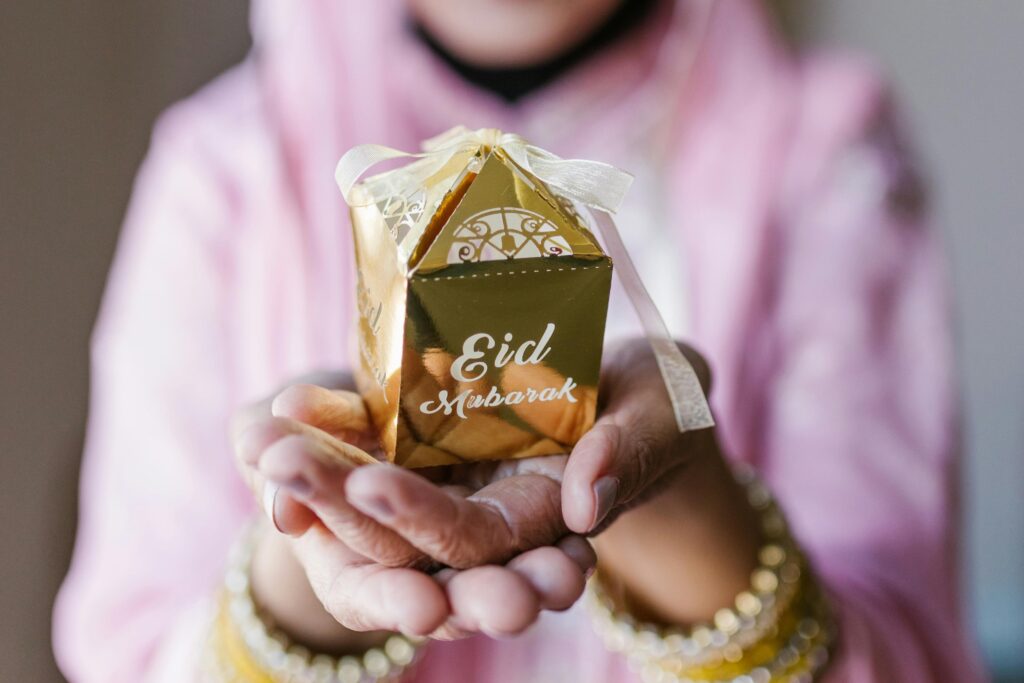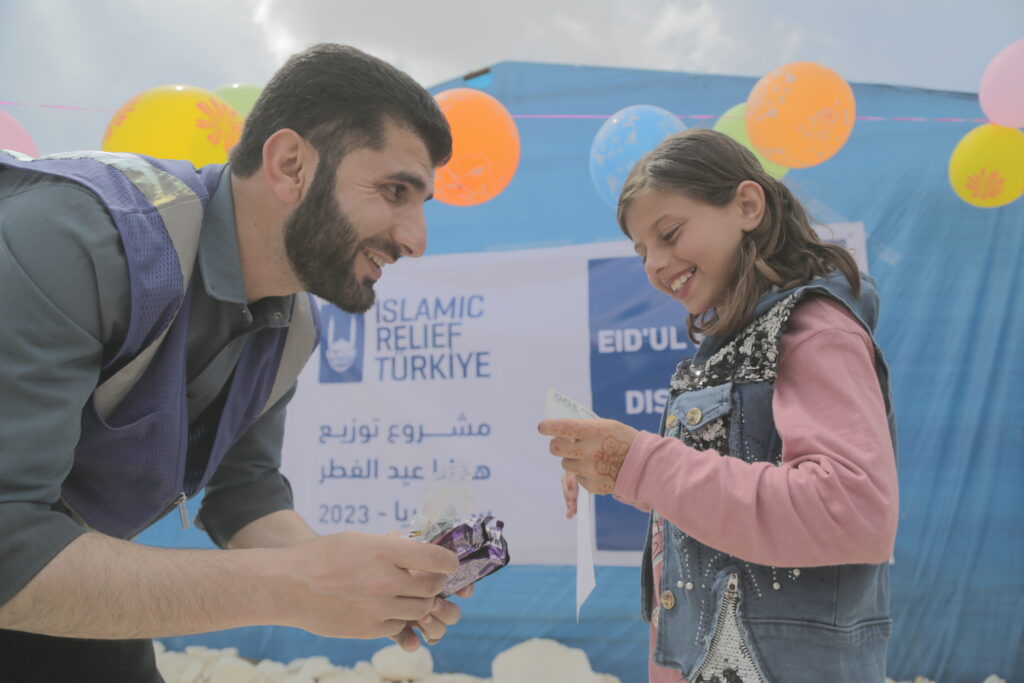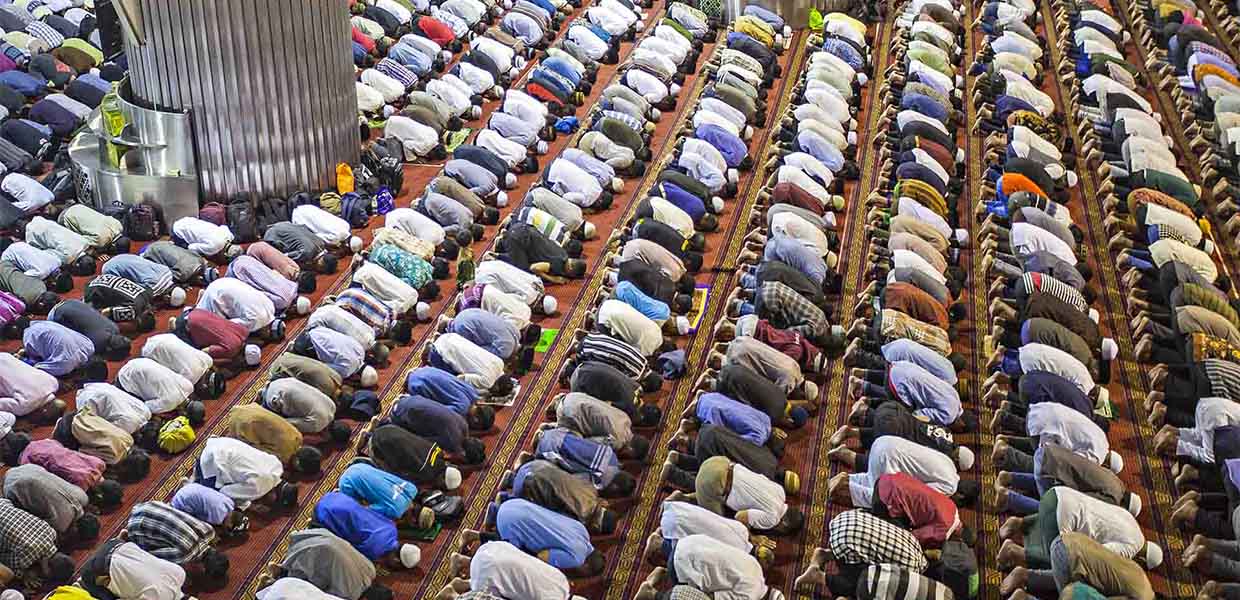
03.26.25
How to Perform Eid Prayer (Salah)
Prayer (Salah) is a crucial part of Eid celebrations, both for Eid al-Fitr and Eid al-Adha. This year, Eid al-Fitr is expected to fall on the evening of Sunday, March 30, 2025. While Eid al-Adha is expected to occur on the evening of Friday, June 6, 2025.
On both festivals, Muslims gather together to perform a special congregational prayer, as well as celebrate and give thanks to Allah (SWT). So how do Muslims perform the Eid prayer?
What time is Eid prayer?
Eid prayer (Salah) takes place in the early morning (after Fajr) on the first day of Eid. Muslims are encouraged to pray in Jama’ah (congregation) with their local Muslim community on occasions such as these.
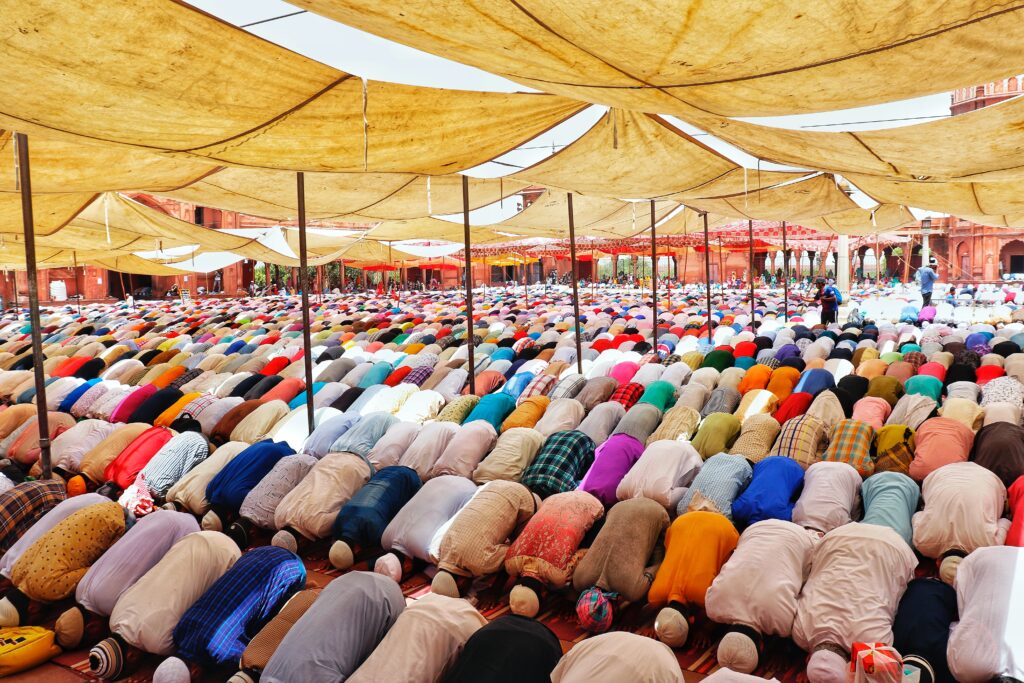
Please check with your local mosque for the prayer schedule in your local area. If you pray with your local Muslim community, please check when and where they will be performing Eid prayer.
How to perform Eid prayer
Before you begin the prayer, when you first get up in the morning:
- Make ghusl (the ritual ablution).
- For Eid al-Fitr, it’s sunnah to eat something before prayer. The Prophet Muhammad (ﷺ) ate dates before going out to prayer. (Sahih Bukhari).
- Wear the best clothes you have! Muslims are encouraged to clean themselves, dress in their best clothes and smell good for a day of celebration!
- Say the general takbeerat on the way to the prayer.
- For Eid al-Fitr, make sure you pay your Fitrana (Zakat al Fitr) before the start of prayer if you haven’t already!
When you’re ready to pray
- Make the intention to perform Eid prayer.
- Give the opening takbeer (‘Allahu Akbar’) with the imam.
- Say the opening supplication quietly to yourself.
- Give 3 more takbeer with the imam, raising your hands out for each.
- Listen to the imam recite Surah al-Fatihah and an additional surah.
- Say ‘Allahu Akbar’ while moving into ruku (bowing) with the imam and continue the prayer cycle as normal.
- In the second rakah, listen to the imam recite Surah al-Fatihah and an additional surah.
- Give 3 additional takbeer with the imam. After the third and final takbeer, place your hands to your sides before doing the ruku again.
- Say ‘Allahu Akbar’ while moving into the bowing position with the imam and complete the prayer cycle as normal.
*Please note: This is the Hanafi method of performing Eid prayer. If the imam recites more takbeer, please follow the imam.
Regardless of when or where you are celebrating Eid, may the blessed festival be one of happiness, peace and immense blessings for you and your loved ones.
May Allah accept good deeds from us and from you! Eid Mubarak!
Have you paid your Zakat al-Fitr yet?
Multiply your rewards from Allah (SWT) this Eid. Give the gift of happiness and hope to our brothers and sisters in need with Islamic Relief.

